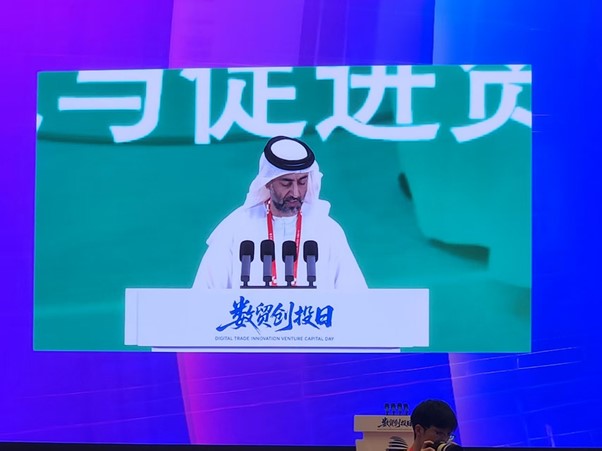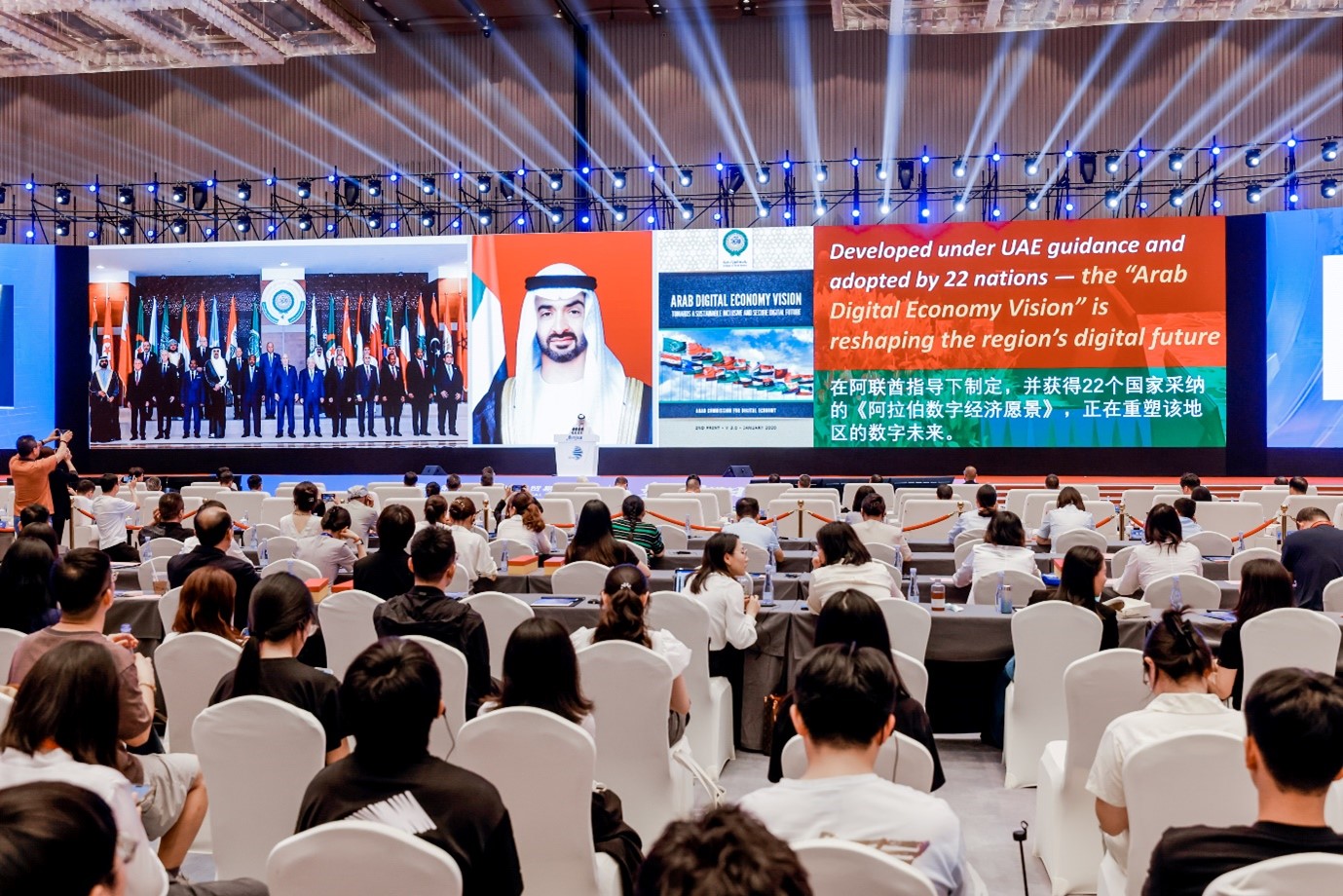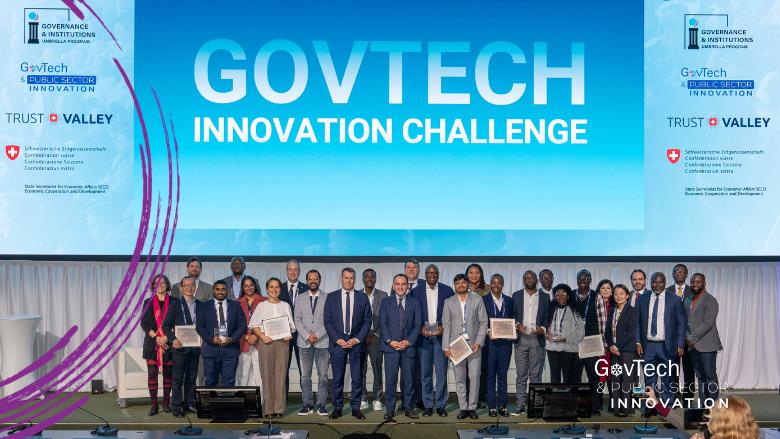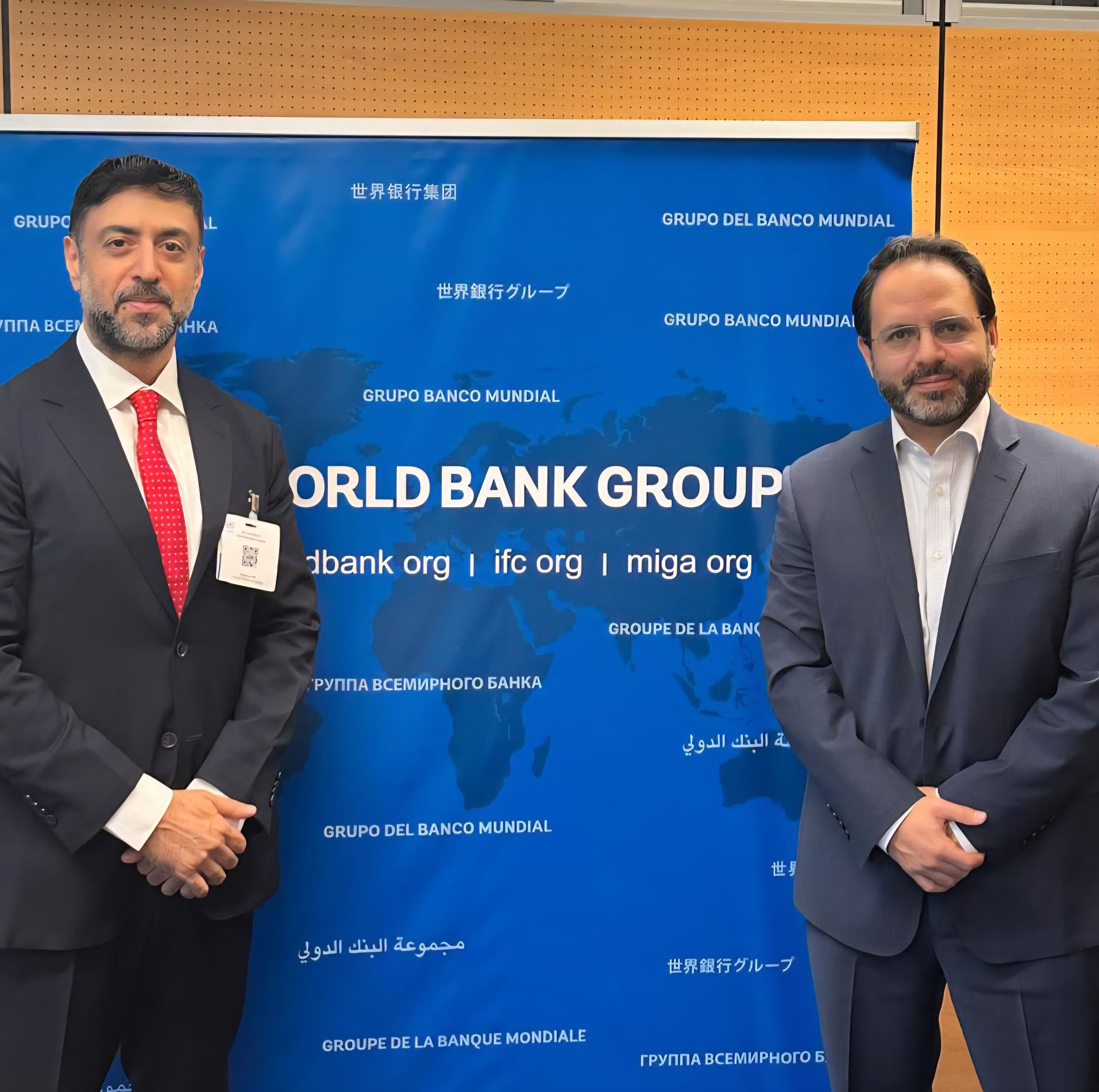Hangzhou – China
The Arab Federation for Digital Economy participated in the fourth Global Digital Trade Expo (GDTE 2025), hosted by the Zhejiang Provincial Government in Hangzhou, China, from September 25 to 29.
His Excellency Dr. Ali Mohammed Al Khouri, Advisor to the Council of Arab Economic Unity and Chairman of the Arab Federation for Digital Economy, delivered a keynote speech during the second session of the exhibition, titled “Building Arab-Chinese Paths Towards Sustainable Digital Trade.” He reviewed the prospects for cooperation between Arab countries and China in the fields of the digital economy and e-commerce, and the importance of building strategic partnerships that contribute to achieving sustainable development and enhancing international economic integration.
Al Khouri explained that digital commerce has become a new driver of the global economy. The value of e-commerce exceeded $30 trillion in 2022, according to estimates by the United Nations Conference on Trade and Development (UNCTAD), and the volume of cross-border digital trade is expected to exceed $8 trillion by 2030. He considered this rapid growth to demonstrate that digital commerce is no longer an emerging sector, but rather a fundamental pillar of sustainable development, job creation, and driving global innovation.

Al Khouri pointed out that the Arab world is also witnessing an accelerating digital transformation, with growing investments in infrastructure, particularly in data centers, expected to exceed $6 billion by 2026. He added that the Arab Digital Economy Vision, approved by Arab leaders in 2022 under the patronage of His Highness Sheikh Mohammed bin Zayed Al Nahyan, President of the United Arab Emirates, represents a unified roadmap for developing infrastructure, harmonizing legislation, and accelerating innovation in the region.
He revealed that studies conducted by the Federation predict that the Arab digital economy will contribute approximately $1 trillion to the gross domestic product by 2030, through the creation of millions of new jobs, increased productivity, enhanced regional trade integration, and increased global competitiveness.
Al-Khouri touched on the key programs launched by the Federation within this vision, including the Digital Education Platform, which aims to equip cadres, professionals, and entrepreneurs with advanced digital skills, and the Arab Food Platform, established to support regional e-commerce and food security by facilitating import and export processes. He emphasized that these initiatives embody the Federation’s commitment to advancing the Arab digital economy, along with an ambitious desire to expand international cooperation, particularly with China, in the fields of e-commerce, financial technologies, and scientific innovation.
As part of strengthening cooperation, Al-Khouri announced the opening of the Arab Federation for Digital Economy office in Hong Kong as a strategic step to connect Arab and Chinese partners and develop projects with global impact. He also announced plans to open new offices in China, establishing a new phase of partnerships based on technology, trust, and shared expertise.
Al-Khouri concluded by emphasizing the Federation’s commitment to deepening strategic cooperation with China, particularly with the Zhejiang region, to transform this cooperation into a lever for new global economic transformations and create innovative paths toward more inclusive and sustainable digital trade that benefits both the Arab and Chinese regions.











